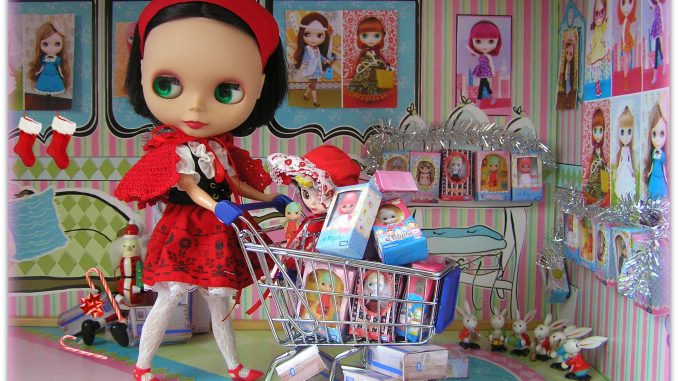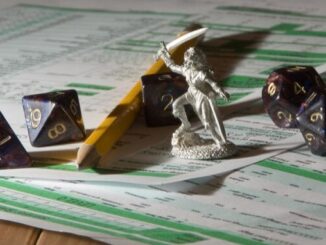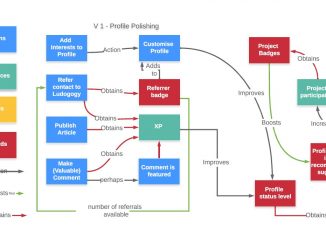
Personal behaviour change is arguably one of the most powerful tools that we have in the fight against environmental challenges, such as Climate Change, ecosystem degradation and overuse of natural resources.
Although the contribution of each individual is small, the power lies in the aggregation of all those small actions or changes. When millions or even billions of us change our eating and consumption habits, the effect will be felt very powerfully.
I would go further, and say that personal behaviour change is the ONLY tool we need to tackle these challenges. We can criticise the actions (or inaction) of businesses and governments, but ultimately they are reacting to the desires (or what they perceive to be the desires) of the marketplace or of the electorate. This is not to absolve either of these completely. It is not a one-way thing. Businesses do their best to create demand (sometimes out of thin air), and create business models (such as built-in obsolescence) which drive increased consumption. But ultimately, if we refuse to ‘play along’, these strategies will fail. Our power as consumers and electors can also drive positive innovation in products and business models.

So what are the key behaviours we need, as individuals, to create, change or get rid of, that would have the maximum (positive) impact on environmental sustainability, and how can we as specialists in gamification and games design help to facilitate these? Furthermore, what are the opportunities, and what mechanisms do we need, to do this at the kind of scale which would make an appreciable difference?
The first of these questions is relatively easy to answer. We have all known for some time what it is we could all do, not do or change to make a difference.
- Reduced Consumption – the best strategy which ultimately ‘trickles down’ or enhances all those that follow.
- Consume less damaging products – shopping for local and organic products helps – among other categories of ‘less-damaging’, but it is still more effective to simply consume less
- Reduced Waste – a side effect of consuming less, can be enhanced by buying with reduced packaging, buying better quality so that things last longer etc.
- Consuming second-hand goods, passing on used goods
- Reuse & mend – repairing rather than disposing
- Recycle – a last resort if none of the above are possible
- Adopt nature compatible strategies – we think of strategies like the ‘circular economy’ as happening at scale, but we can help to create a market for this by voting for our wallets, and can adopt individual strategies which mimic natural ones; composting, creating wildlife gardens etc.

The second question is less easy, but we do have plenty to go on. Particularly over the last 20 years or so, our understanding of human behaviour and how it is driven has grown into a rich set of frameworks, models and tool, which can be held under the loose heading of ‘Gamification’ (or human-focused design, if you prefer).
So, we are able to create all kinds of gamified activities, designed to help people achieve positive behaviour change, based on whichever theory or framework seems most appropriate. For example:
- Based on Yu-kai Chou’s Octalysis framework we could design activities which enhance the innate drive to be part of something greater than oneself (CD1) to drive participation in e.g. citizen science or conservation activities.
- Based on a ‘player type’ framework such as Andrzej Marczewski’s Hexad, we could tailor activities, or messaging to appeal variously to ‘Socialisers’ who would favour an activity which allows them to share and gain social status for their sustainability efforts, or for ‘Players’ who must be able to see how they would personally benefit.
- We could decide how to reward people for positive habits, using a framework such as Gabe Zicherman’s SAPS model which tells us that we prefer to be rewarded first with Status, then Access, followed by Power and finally, Stuff
- We could adopt simple and time-tested techniques such as ‘Streaks’, made famous by Jerry Seinfeld’s recommendation, to ensure consistent performance
- We can build on the work of others, such as the ‘self-gamification’ activities designed by our own valued contributor, Victoria Ichizli-Bartels
- And so on…
It is maybe in our nature to adopt two mindsets which can be seen as major blockers to achieving the widespread personal change that would be needed.

- We underestimate the ‘the difference’ which one person can make.
- We try to shift the responsibility for negative outcomes, away from ourselves, and onto others, particularly if those ‘others’ are remote from and different from ourselves. This is the mindset which is at work when we in Western Europe feel justified in blaming China for high carbon emissions. It seems of the face of it reasonable. China has a large manufacturing base, which produces pollution. What is completely disregarded in this argument is what is driving this high level of manufacture, and who benefits from it. Our consumption patterns are directly responsible, and we cannot absolve ourselves from responsibility even if the actual pollution happens elsewhere.
Our ‘answers’ to this second question, the designs we create to help people maintain sustainable lifestyles need to consider these and other cognitive biases of our learners/participants, as well as the behavioural science behind gamification.
The third question is by far the most problematic. We have already identified potential blockers on a personal level above, but once we try to scale our solutions, we are dealing with a far larger ‘system’ – a whole organization, or even society at large.
So the rest of this article does not present solutions, but instead poses questions, which invite answers from the gameful design community.
In common with learning in general, behaviour change can only happen at an individual level. When we talk of change within an organization, what we are really looking at is the aggregation of personal change.
If we want achieve scalable change with gamified campaigns and activities, there are a number of confounding factors we need to consider.
- How can our gamified solution reach sufficient people to achieve a ‘critical mass’?
- How can we aggregate the efforts of learning and games designers so that we are not wasting effort, working individually towards common goals when combined effort would be more efficient?
- What additional skills, other than our existing learning and gamification skills do we need, because we want to operate at scale (for example, systems thinking)?
- What can we learn from how countries have been able to quickly and effectively implement widespread behaviour change in response to the Coronavirus crisis?
- Gamification deals primarily with behaviour change through motivation. How do we simultaneously (and at scale) bring about the change in knowledge – how to act, and in agency – the ability to act once motivated?
I would welcome your ideas.
- James Bore – The Ransomeware Game - 13th February 2024
- Ipsodeckso – Risky Business - 23rd January 2024
- Review – Luma World Games - 15th December 2023





Be the first to comment